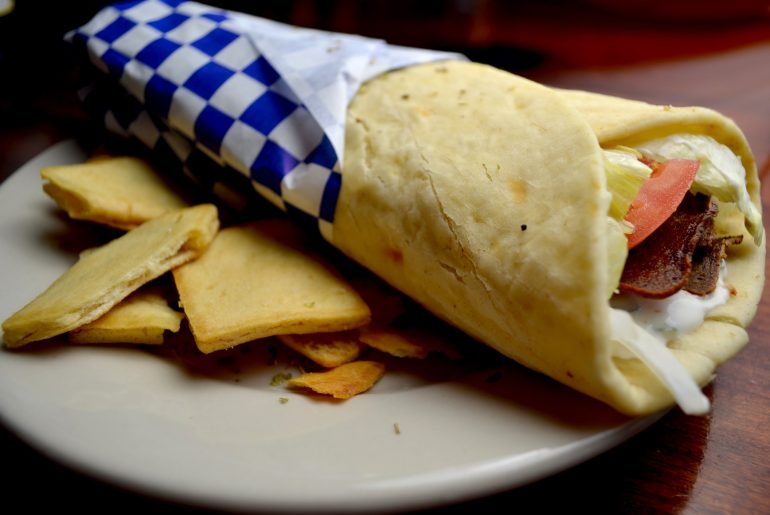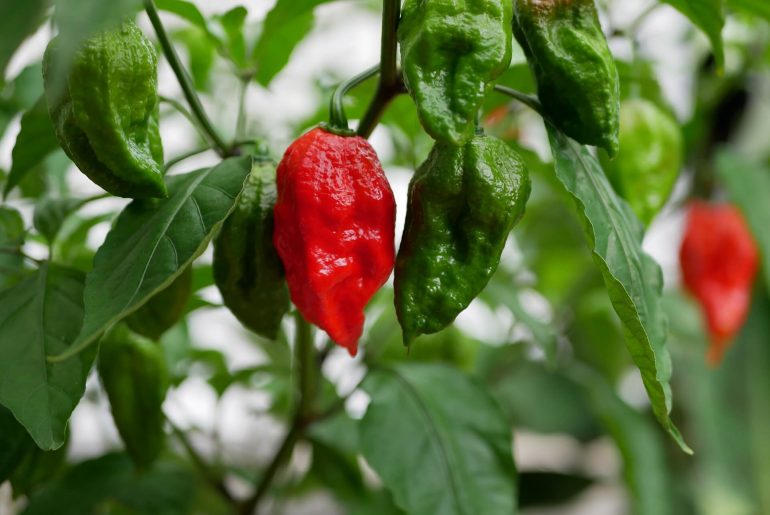The gyro. It’s a delicious sandwich typically made with thinly sliced lamb, tzatziki sauce, and onion rolled in a warm pita. Something that simple shouldn’t be so complicated to order. After all, it’s only four letters. But what’s the proper way to pronounce “gyro?” The word for this classic Greek sandwich was borrowed by the English language in the 1970s, but since then, Americans have butchered the pronunciation to the point we’re no longer sure how to say it. We can no longer order this classic Greek sandwich with confidence. Most people agree that gyros are delicious, but they tend to disagree on how to pronounce g-r-y-o. Is it GUY-roh? ZHI-ROH? Or maybe JAI-roh? Some say GEE-roh or JEE-roh. Luckily, this isn’t one of those situations where it depends. There is a clear right and wrong way. And the right way: YEE-roh. JAI-row is probably the most common way of…
Merriam-Webster adds ‘umami,’ ‘ghost pepper,’ ‘go-cup’ and more to dictionary
The English language never stops expanding, and neither does the dictionary. This past week, the editors at Merriam-Webster’s Dictionary added more than 600 new words, among them, a handful of food-related terms that are sure to come up in your food-loving life. In order for new words to make the cut, editors must find that a word is in frequent, widespread and meaningful use — all three of these factors must be in play. Several new words don’t seem new at all. Words you’ve been using for years, like “ghost pepper,” “java,” and “chai latte,” will have you wondering how they’re not already in official status. But that goes to show you that widespread usage is extremely important. “Umami” is another word — as in, one of the five tastes that humans register, along with salty, sweet, spicy and sour — that was elevated to official word status. The word…
Kombucha and cotija among foods to finally earn dictionary entries
Merriam-Webster announced this week that it will add 850 new words to its online dictionary — and our ever evolving love of food can be thanked for many of them. “In recent years, a the richest source of these newly adopted foreign-language words has been the world of food-or, perhaps we should say: the food of the world,” Merriam-Webster said in a news release about the dictionary update. Among the new class of words is “aquafaba,” or the leftover water that results from cooked beans. The liquid is used in many vegan dishes and is ofter used as an egg white substitute. “Cotija,” the Mexican hard cow’s milk cheese named after the town in the Mexican state of Michoacán. “Harissa” is a versatile fiery and garlicky paste spice from North Africa. Seemingly late comers to the dictionary are the fermented and effervescent tea drink kombucha and the raw seafood dish “poke.” If…
The science behind ‘hangry’
Coworkers know the perils of the end of the day: that terrible time when people are ravenous to get home and gorge. It’s the perfect environment for bouts of ‘hanger’, a mix of hunger and anger, typically with some short-temperedness and grumpiness thrown in just for good measure. ‘Hanger’ has been in the news this week for finally becoming widely used enough to be accepted into the Oxford English Dictionary as an official entry, but where does ‘hanger’ really come from? And why can’t grown adults seem to get a handle on this feeling? After all, you’re probably not worried about when your next calories are coming from. The answer lies in the body processes that happen when your internal systems are low on food. Typically, carbs, proteins and fats are digested into simple sugars, amino acids and free fatty acids. There nutrients are passed into your bloodstream where they arrive…
‘Hangry’ now officially a word in the Oxford English Dictionary
Because the English language is ever evolving, 1,100 new words were just added to the Oxford English Dictionary as part of its quarterly update. This means that ‘hangry’ is here to stay. Other official entries will now include ‘mansplaining,’ ‘snowflake’ and ‘me time.’ Qualifying for inclusion in the Western world’s most famous dictionary isn’t easy. As the most complete record of the English language ever assembled, many people weigh in on the process before a new word reaches dictionary status. The OED requires several independent examples of the word being used. Then dictionary researchers consult experts to decide if the the word or phrase should be added to the more than 829,000 words already in existence. In the past, words like OMG and YOLO have raised eyebrows, but most words this round could hardly be argued. Here are a few you’re likely already using: ‘Hangry’: Though its become a favorite in recent…





